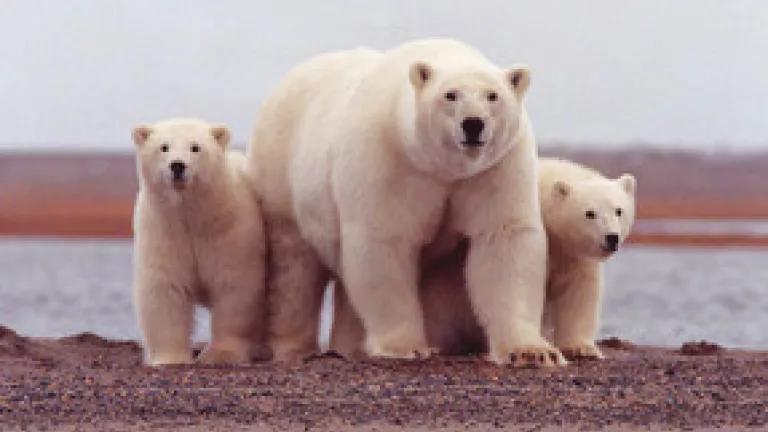
When we turn on the heat in our homes or start our cars, most of us don’t think about the creatures that may be harmed as a result. But the fact is that oil, gas, and coal extraction is one of the leading threats to our nation’s wildlife.
The Endangered Species Coalition’s new report, Fueling Extinction: How Dirty Energy Drives Wildlife to the Brink, extrapolates upon this point by highlighting the top ten animals, plants, birds, and fish most jeopardized by the development, storage, and transportation of fossil fuels.
At number one is the endangered bowhead whale, which is threatened by potential oil spills and noise from offshore drilling—a danger that will increase significantly if President Obama’s 2012-2017 proposed program for outer continental shelf (OCS) oil and gas drilling, which opens the Arctic to drilling for the first time, is finalized.
Other species the pursuit of fossil fuels is pushing to the brink include the endangered whooping crane, which overcame near extinction in the 1940s, but would suffer at the hands of the proposed Keystone XL Pipeline, which would run alongside the crane’s migratory path, destroying resting places and food sources. Additionally, the Kemp’s ridley sea turtle’s population is dwindling as a result of the BP oil disaster’s lingering impacts, which are destroying the sole breeding ground of this lovable critter. And the polar bear is likely to become extinct due to melting sea ice, seismic testing, icebreaking, and vessel movement—activities that will only increase in the polar bear’s Arctic home if President Obama’s proposed program is finalized.
The extinction of our nation’s wildlife is simply too high a price to pay for energy we could obtain via less destructive means: renewables and increased efficiency. The tools to build a clean energy future are within reach, but to make it a widely available option, we must urge our lawmakers to stop subsidizing oil and gas companies and help pave the way for clean energy investments. Indeed, congressional action is necessary since, while we can each try to reduce our own personal reliance on fossil fuels, the fact remains that we currently have little choice when it comes to our energy source.
Let's create a future where turning on a light in our houses doesn’t mean turning off the lights for wildlife.

